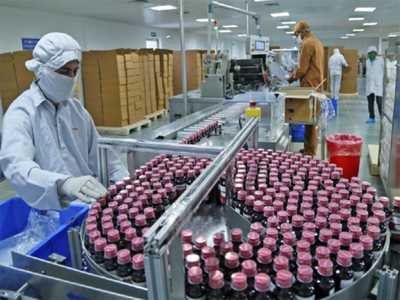Gurugram (Haryana) [India], November 7 (ANI): In a landmark advancement for Indian healthcare, doctors at FMRI, Gurugram, have reported exceptional success in curing children suffering from Sickle Cell Disease (SCD) through Bone Marrow (stem cell) transplantation, a development that places India among the leading nations in advanced paediatric transplant outcomes.
The decade-long study, published in the international journal Haemoglobin, analysed 100 paediatric cases treated between 2015 and 2024. The results demonstrate an overall survival rate of nearly 87%, with 96% success among matched sibling donor transplants and 78% success among half-matched (haploidentical) family donor transplants. These outcomes are among the best reported globally, marking a significant advance in the management of Sickle Cell Disease in developing nations.
Sickle Cell Disease is an inherited blood disorder that affects millions of children worldwide, particularly in India and sub-Saharan Africa, where nearly half of the global cases occur. The condition leads to severe anaemia, recurrent pain crises, stroke, organ damage and a shorter life expectancy. Until now, treatment options were limited mainly to symptom control through medications and blood transfusions. Stem cell transplantation (also known as bone marrow transplant) replaces the defective bone marrow with healthy stem cells from a compatible donor, offering a permanent cure.
Dr. Swati Bhayana, Lead Author of the study and Consultant, Paediatric Haematology, Oncology and Bone Marrow Transplant at Fortis Gurugram, said: "This is a ray of hope for families living with Sickle Cell Disease. Our research shows that children in developing countries like India and across Africa can achieve survival rates comparable to the best centres in the world when given timely access to advanced care. These results prove that a cure is possible, even in resource-limited settings."
The study revealed that early diagnosis and timely transplant are critical for long-term survival. Performing the procedure before the onset of severe complications like stroke or organ damage dramatically improves outcomes. The Fortis team achieved these results using advanced transplant protocols that minimise side effects and reduce the risk of graft-versus-host disease (GVHD) - a common post-transplant complication.
Dr. Vikas Dua, Principal Consultant & Head, Paediatric Haematology, Oncology and Bone Marrow Transplant, Fortis Gurugram, added, "Many of these children had been living with pain, repeated hospitalisations, and dependence on transfusions. Today, they are leading healthy, active lives. This milestone reinforces our belief that every child deserves a chance at a normal life and that early intervention is the key to success."
The study also noted significant progress in haploidentical (half-matched) transplants, which use parental donors when a full sibling match is unavailable. The use of reduced-toxicity conditioning and post-transplant cyclophosphamide (PTCy) protocols lowered complication rates, making the treatment safer and more widely applicable.
Dr. Rahul Bhargava, Principal Director, Institute of Blood Disorders and Bone Marrow Transplant, Fortis Gurugram, emphasised the broader impact: "India and Africa together carry nearly half the world's burden of Sickle Cell Disease. By developing cost-effective, safe, and scalable transplant protocols, we are showing that cutting-edge medical innovation doesn't have to be limited to the developed world. Our goal is to ensure that every child, regardless of geography or income, has access to a cure."
Dr Sohini Chakraborty, Senior Consultant - Pediatric Haematology, Oncology and Bone Marrow Transplant, Fortis Gurugram, said, "The findings underscore the importance of awareness, collaboration, and early diagnosis. With improved donor registries, better infection control, and stronger post-transplant care, doctors at Fortis are confident that the cure for Sickle Cell Disease can become a reality for children worldwide."
Yashpal Rawat, VP & Facility Director, Fortis Gurugram, said, "At Fortis, we believe that innovation must serve humanity. This breakthrough reflects our mission to combine world-class technology with compassion, making lifesaving treatments available and affordable for families in India, Africa and beyond. The success of this decade-long effort reflects not just medical excellence, but also Fortis Healthcare's commitment to expanding access to advanced care across regions."
This achievement marks a significant milestone for Indian healthcare. (ANI)
You may also like

"1.12 crore signatures collected in campaign against vote theft": Karnataka Dy CM Shivakumar

"We're receiving positive responses from all corners": Bihar BJP Chief on second phase of assembly polls

"This doesn't feel right": Stephen Curry's wife Ayesha Curry opened up about how motherhood brought a "shift" in her life

"Symbol of inclusion": President Murmu hails Mitti Cafe at Rashtrapati Bhavan

Arsenal handed Brian Brobbey Sunderland goal verdict after Gabriel protests







